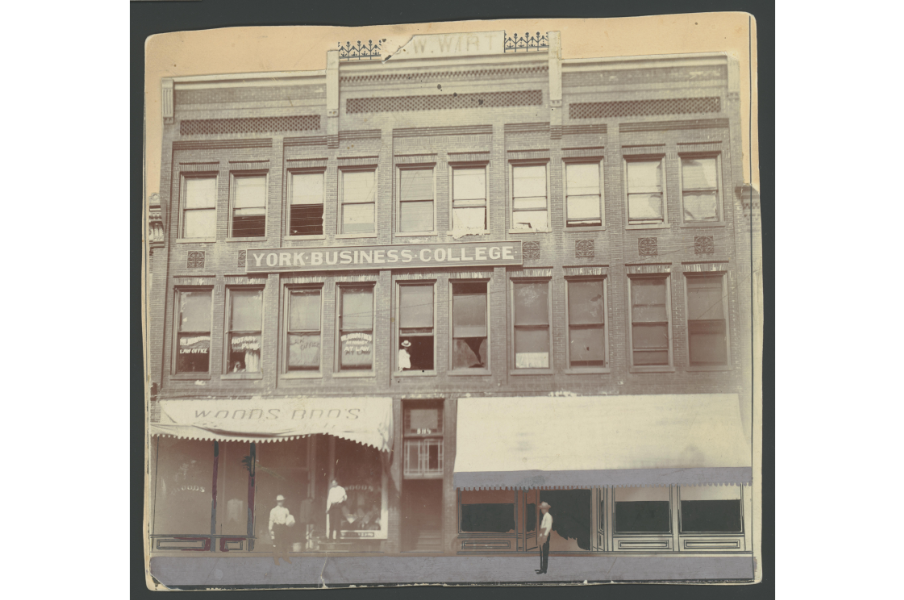One of the benefits of publishing historical essays is the way they elicit previously unknown materials from readers. Recently Dr. Oliver Pollak forwarded a letter from Frank Sorenson of Corvallis, Oregon, written in response to Pollak’s essay, “Looking for ‘Wide Awake’ Young People: Business Colleges in Nebraska, 1873-1950.” Sorenson writes:
I enjoyed your article on business colleges in Nebraska in the Spring 2009 issue of Nebraska History. My father attended York College, and I thought you might be interested in some of his reminiscences about the experience.
As background, Dad was almost 20 at the time. He was helping his father on the family farm near Creighton, Nebraska, and farming some leased land, which had enabled him to earn and save some money. Previously he had gone to school part time through the fifth grade, so university wasn’t an option. Dad’s comments [from a 1967 manuscript] follow:
“[Possibly] I would have stayed on the farm had I not had a visitor from York Business College. The gentleman who called was Mr. Buckley . . . President of the college. I haven’t the least idea how he got my name. . . . [H]e drove into the yard, introduced himself and told me why he was there. Either he was a good salesman, or I was an easy sell. I signed a contract to go to school in York. . . . Total tuition was $180 with no time limit . . . whether you went to school one year or four . . .
“I arrived in York . . . in December [1908]. The next morning I went directly from the hotel to the office of the school, paid $180 tuition, received the books, etc., and instructions for starting. I was directed to a home where living accommodations were available. Six boys were living there, all students of the college and all from farm homes. Weekly cost for room and board was $2.00. . . . Only one had finished high school.
“York Business College was a private school staffed with five teachers. We attended nine months a year, five days a week and had some homework. While our work was graded [no one flunked], . . . anyone who paid tuition . . . could continue in school.
“What did one study . . . and what did a young man think he was preparing himself for. First, for those of us with little or no schooling, it provided the fundamentals in reading, writing, arithmetic and spelling. I should include ‘grammar.’ . . . I believe we devoted more time to that subject than any other. We could start at any level and proceed as far as their facilities allowed. Second, it provided business courses in shorthand, typing and bookkeeping.
“Primarily, we hoped to prepare ourselves for stenographic, bookkeeping, or any kind of office work that would give us a start in business. Then we would gradually better ourselves by further education and actual experience.
“[With summers off and time out for fall farm work] I attended school for 15 months. . . . As we approached the spring of 1910 I told Mr. Buckley I would not be back in the fall. He told me bluntly I was making a mistake . . . because I was weak in the business course. . . . I soon discovered he was right.
To conclude, Dad went to Omaha and got a job from which he was quickly fired. He just as quickly got another job under another man who provided the further education and on-the-job experience.
What were the benefits of attending business college? One, he met a girl there, who was from a remote Sand Hill ranch and was sent to York to go to high school. She later became my mother. That was sufficient benefit for me. Two, I would say it provided a foundation, or at least a sense of foundation, and opened a door with the result that, when Dad retired, he was managing the Kellogg plant in Omaha and had a small farm.

Black and white photographic print of the York Business College.



